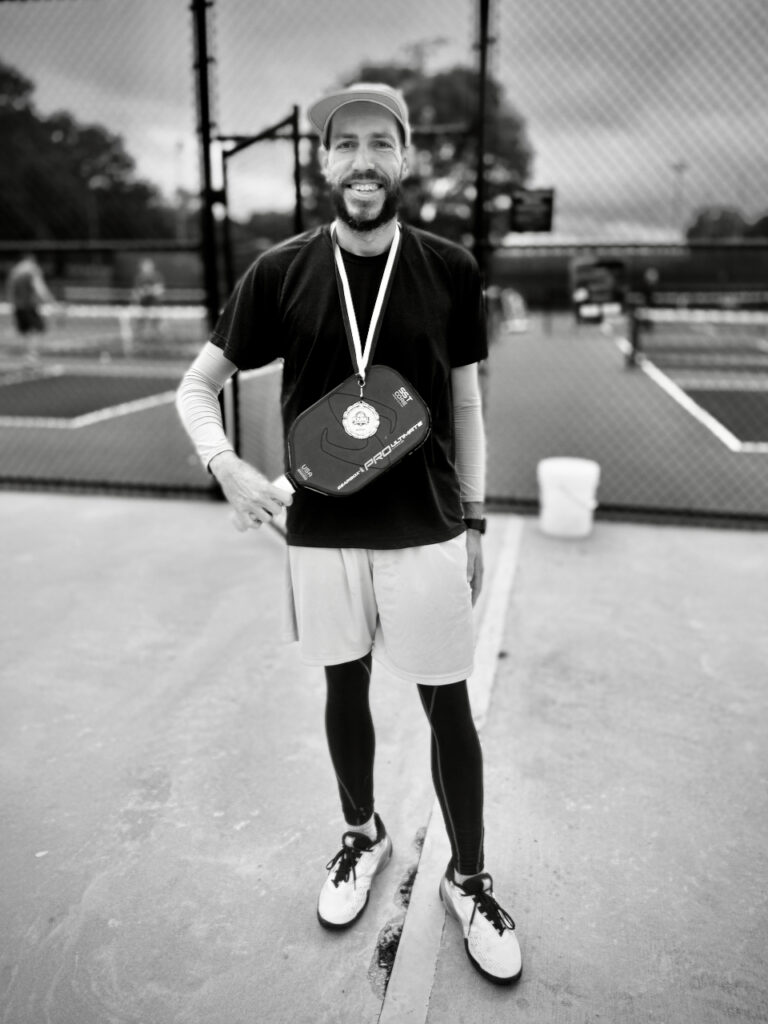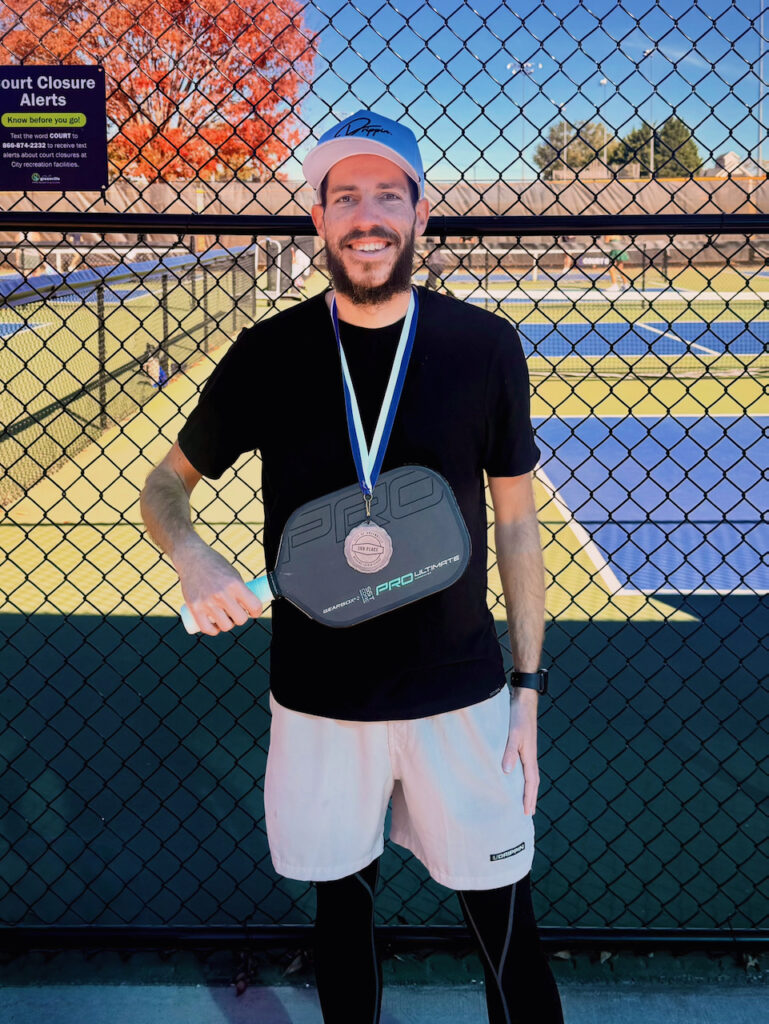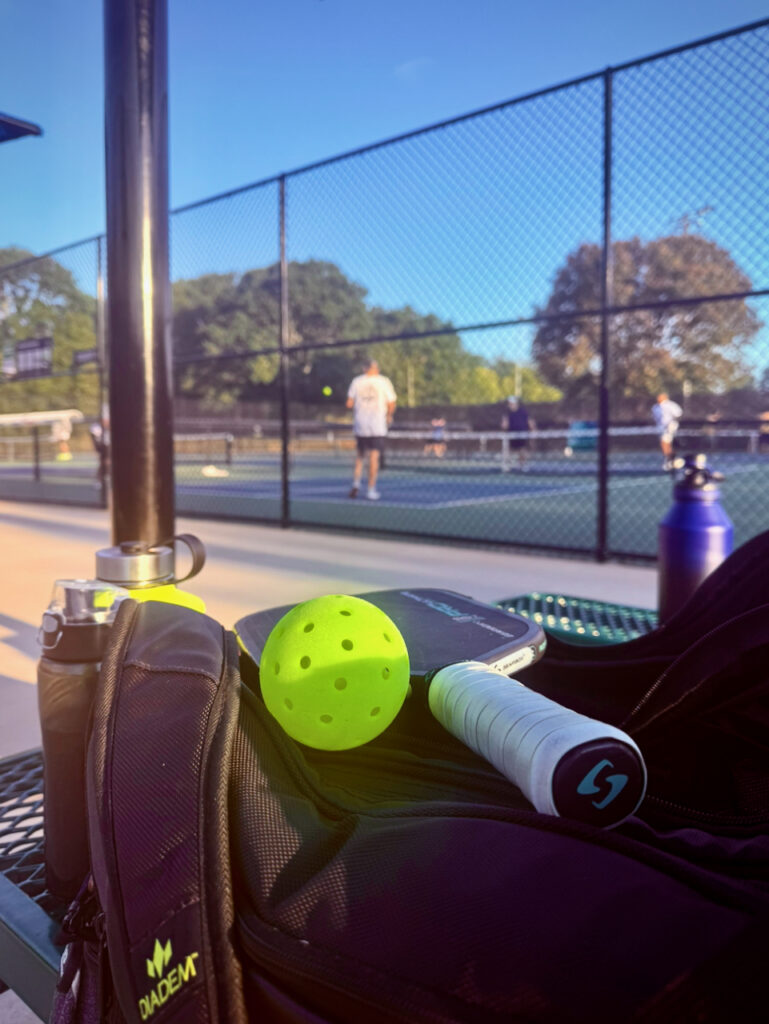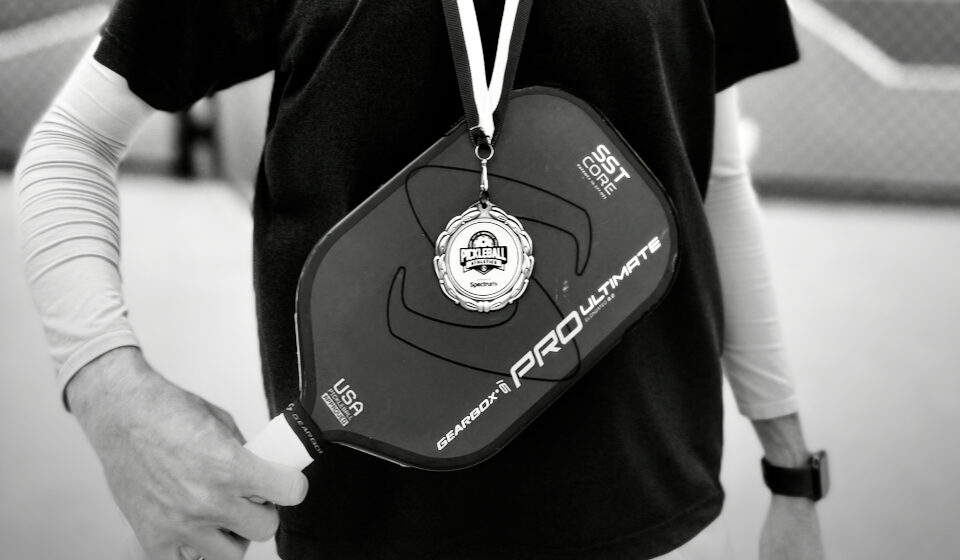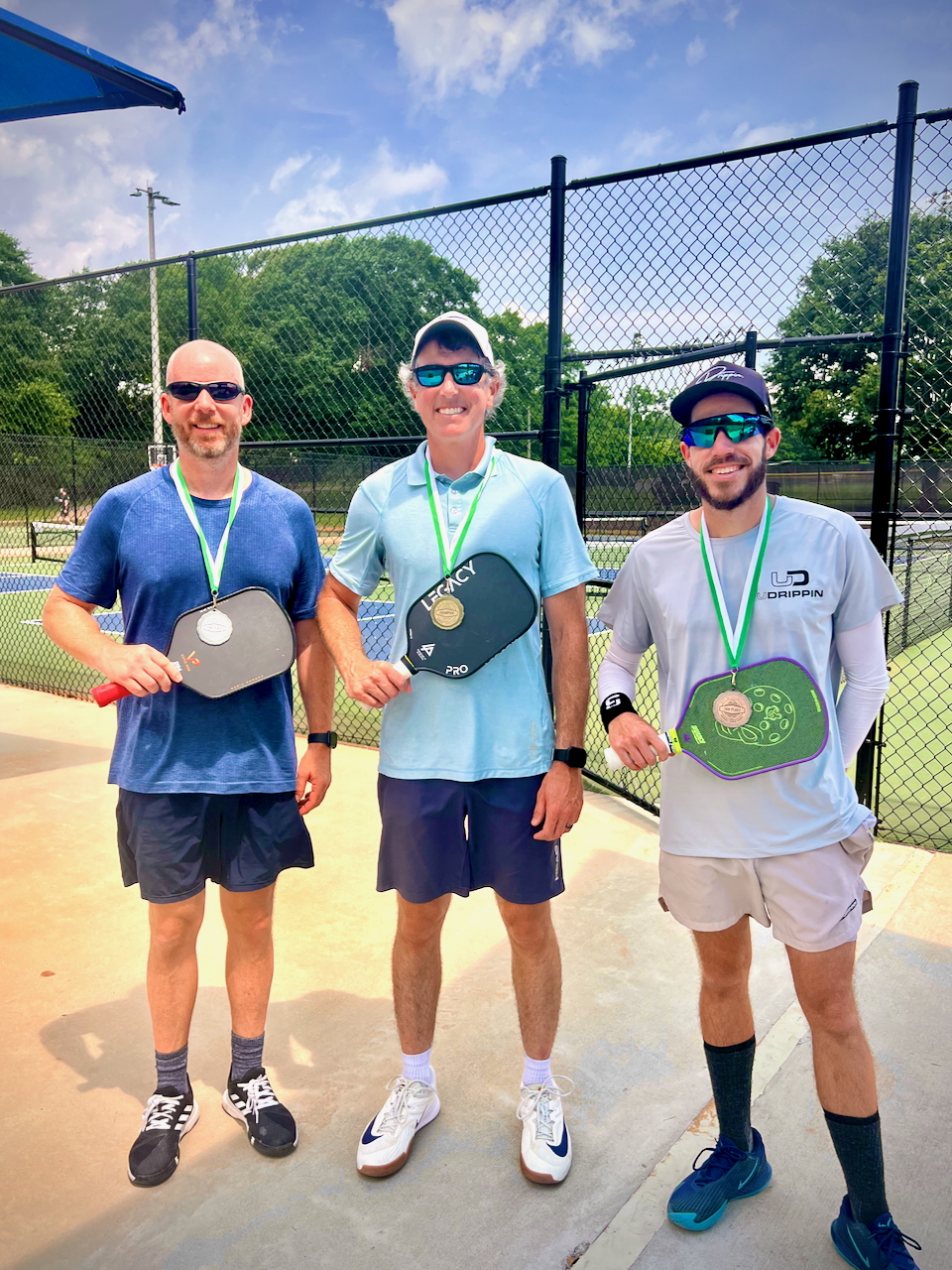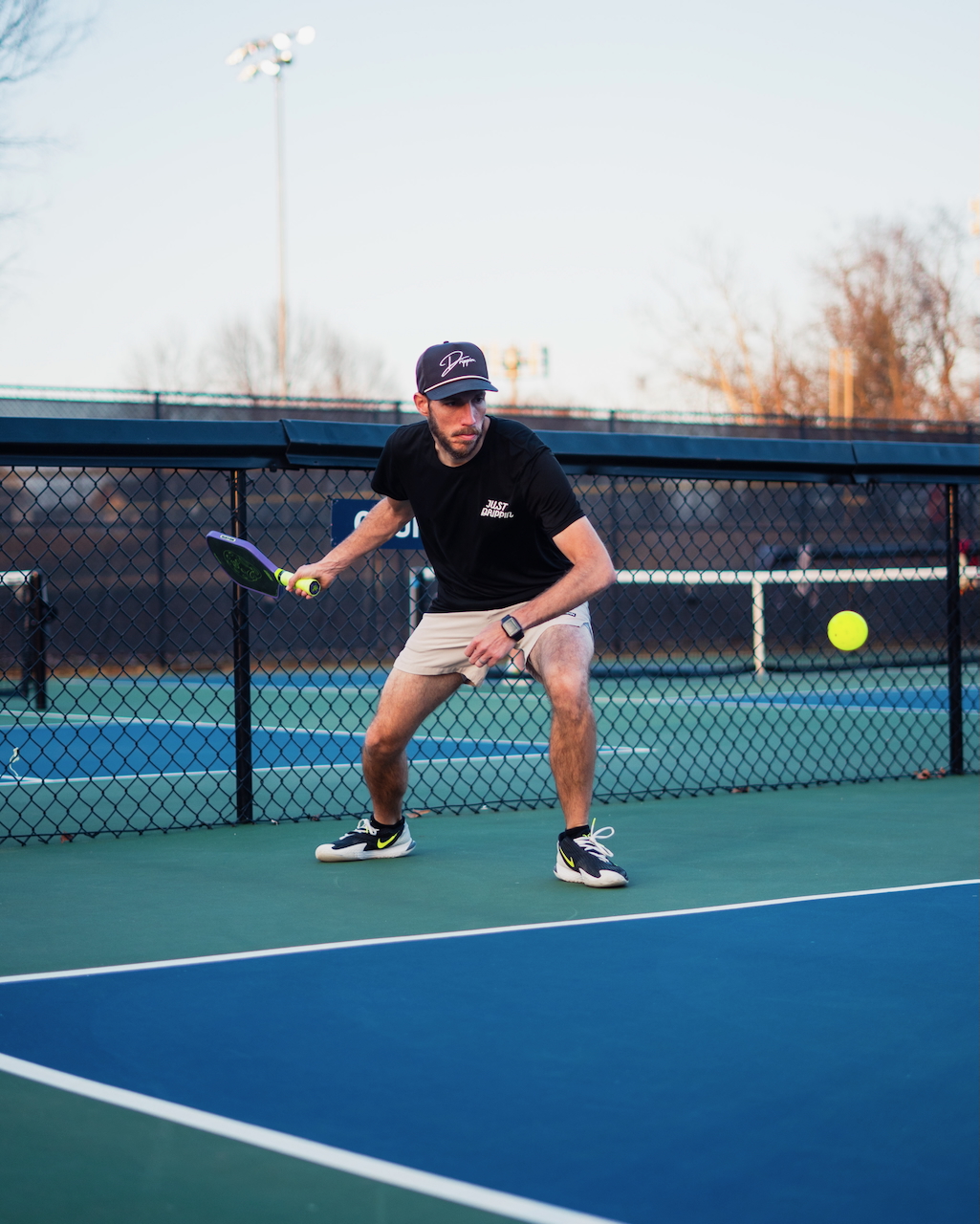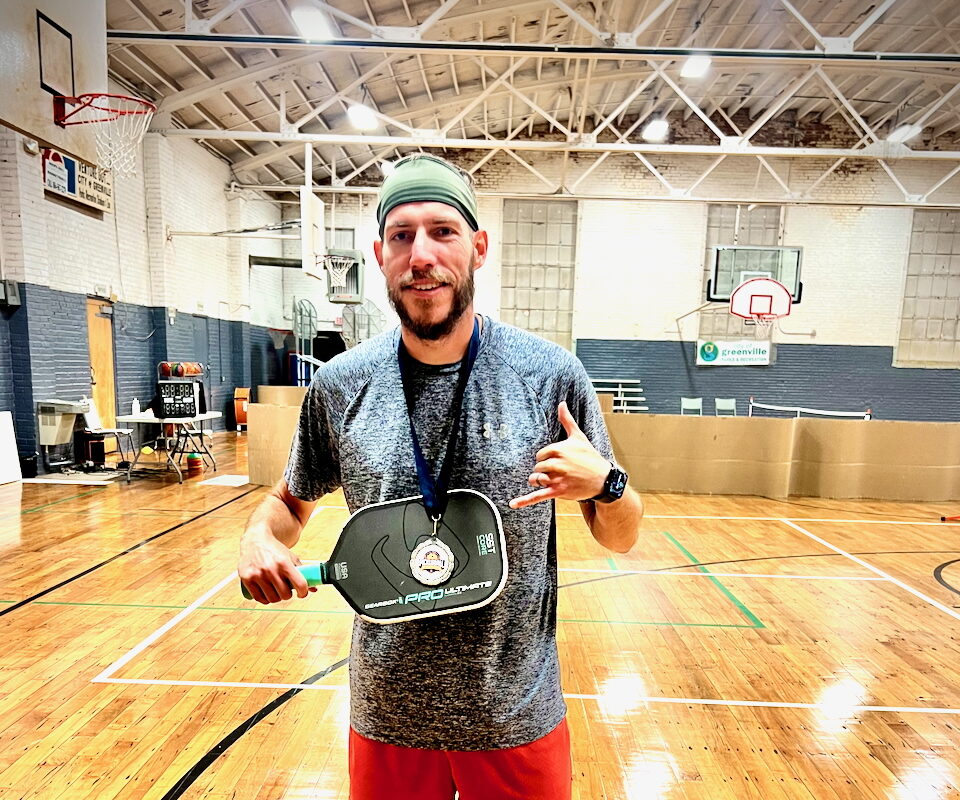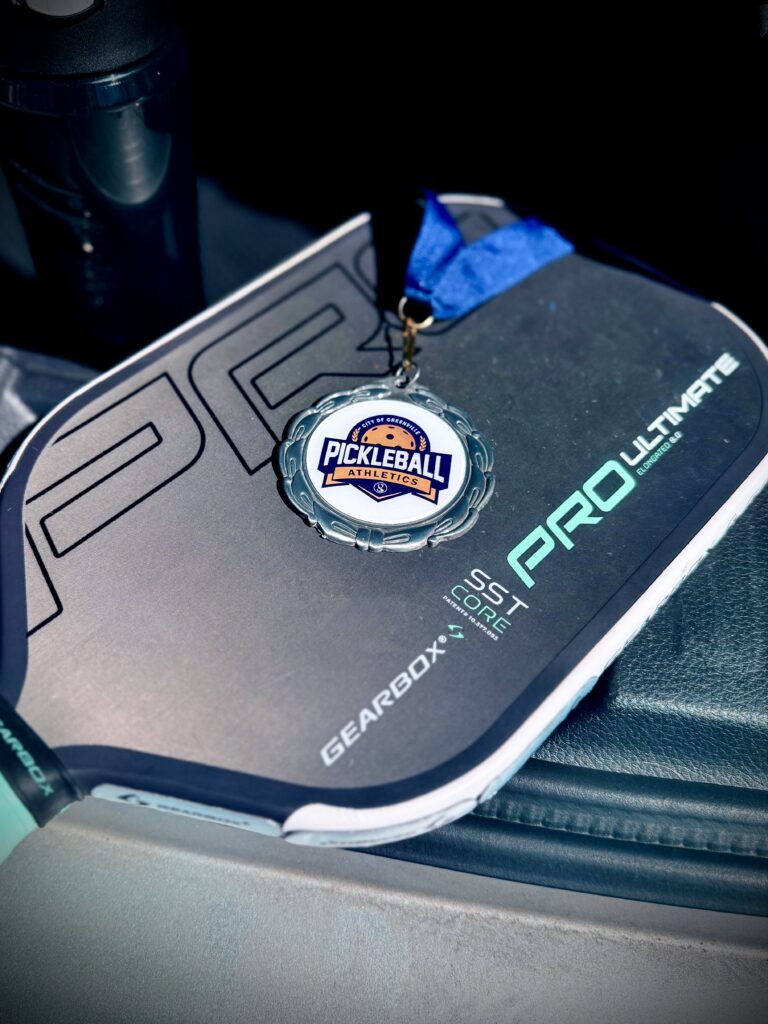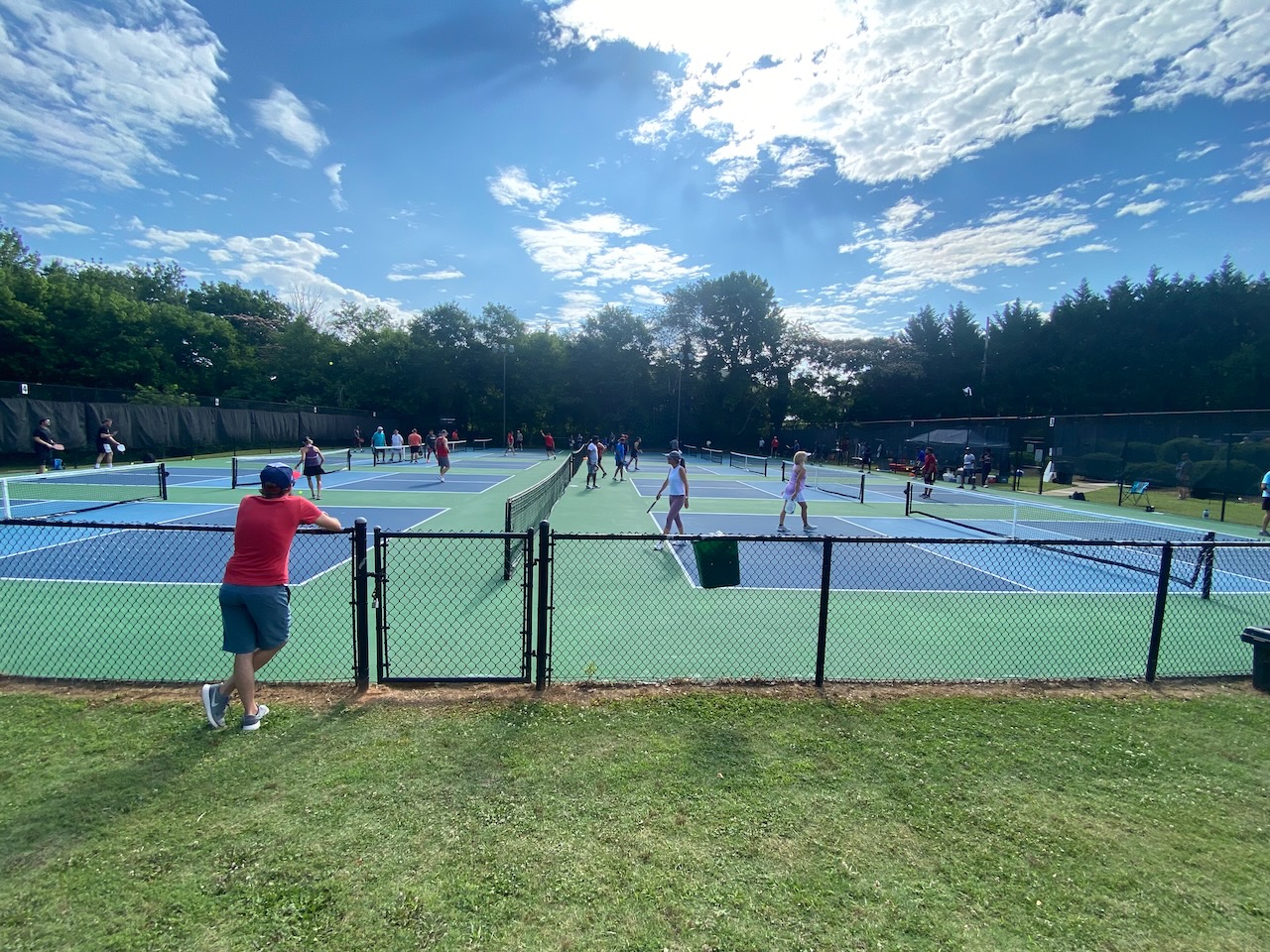Mental resilience: the ability to stay focused, composed, and confident in facing challenges. And it isn’t just for elite athletes. It’s a skill any level of player can build with intention and practice. Whether you’re grinding through a tough tournament or facing a frustrating rec match, these strategies can help you strengthen your mental game.
1. Train Your Focus Like a Muscle
Mental performance expert Dr. Erik Korem refers to mental fitness as something you build, not something you’re born with. His platform AIM7 emphasizes the importance of adaptive capacity: your ability to handle stress, recover, and remain sharp under pressure.
Just like your third-shot drop, focus requires repetition. Use short, focused drills in your practice to sharpen concentration. For example, set a goal to hit 10 cross-court dinks in a row without error. The moment your mind wanders, you’ll see it in your paddle. Over time, you’ll become more present during critical points in a match.
Try This: Between points, develop a reset ritual—a deep breath, paddle tap, or mantra like “One point at a time”—to stay locked in.
2. Detach From the Outcome
One of the biggest mental traps in pickleball is tying your worth to the score. When you’re winning, you feel great. When you’re losing, self-doubt creeps in.
Instead, shift your focus to controllable factors: effort, attitude, and decision-making. According to Paddletek’s mental training blog, the best players focus on the process, not just the result. Winning becomes a byproduct of consistent execution.
Reframe Your Thoughts:
- Instead of “I have to win this match,” try “I’m going to play smart, aggressive pickleball.”
- Instead of “I can’t miss this shot,” try “I’m going to trust my swing.”
3. Get Comfortable With Discomfort
A tough opponent, an off-day, or a windy court—these variables are out of your control. What you can control is how you respond.
In his podcast, Erik Korem highlights how embracing small doses of stress in training can expand your capacity to handle it in competition. This aligns with DUPR’s advice: lean into pressure situations. Practice tie-breaker scenarios. Drill while fatigued. Play games where you’re forced to go down 0-4 before the first serve.
Every uncomfortable rep becomes a deposit in your resilience bank.
4. Recover Like an Athlete
A resilient mind is a rested mind. When your nervous system is overloaded, performance drops. That’s why rest, sleep, and active recovery are non-negotiable.
AIM7’s approach to wellness emphasizes personalization: some players need a walk and a podcast, others need a nap. The key is listening to your body and giving your mind the rest it needs to stay sharp.
Bonus Tip: After a tough match, don’t rush into analysis. Take a breath, get some hydration, and give yourself time to reflect without judgment.
5. Build Your Inner Coach
Your self-talk is your secret weapon—or your biggest saboteur. Learn to speak to yourself like a supportive coach, not a harsh critic.
Instead of berating yourself for mistakes, try affirming your intention. “I missed that serve, but I love that I went for it.” This fosters confidence and keeps your emotional energy intact throughout the match.
Over time, you’ll develop a stronger inner voice—one that keeps you grounded, focused, and ready for the next point.
Final Thoughts
You can’t control your opponent. You can’t control the weather. But you can control how you show up mentally.
Mental resilience is what keeps you calm in chaos, focused under pressure, and positive through adversity. It’s a skill that not only elevates your game but enhances your experience of the sport. So next time you step on the pickleball court, remember: strength isn’t just physical–it’s in your mind.
Further Reading:
Start building your mental game today—and watch every other part of your game rise with it.
Photo Credit: MARK KAMIBAYASHIYAMA MEDIA
